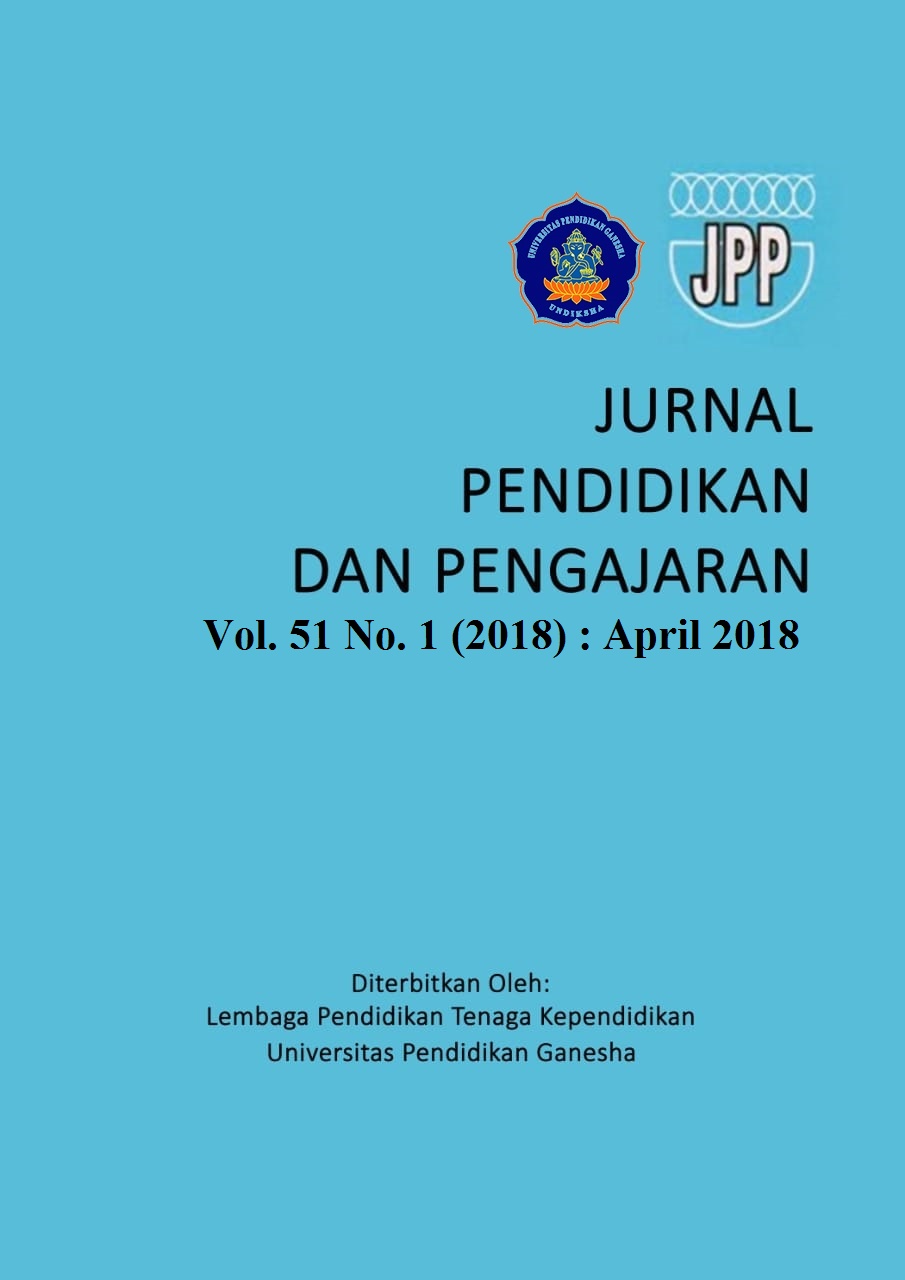The contribution of psychological maturity and knowledge management in the developing sustainable professional development of productive programme teachers at public senior vocational schools in Bali Province
DOI:
https://doi.org/10.23887/jpp.v51i1.13984Kata Kunci:
psychological maturity, knowledge management, sustainable developmentAbstrak
This study was aimed at investigating the effect of psychological maturity and ability to manage knowledge on sustainable professional development of productive program teachers of public senior vocational schools throughout Bali province by using expose facto research method involving 162 productive prgogram teachers in the fields of technology and engineering. The data were collected through qestionnaire and observation. Data analysis was carried out by using two-predictor regression at 0.05. The results showed that most of the productive program teachers tended to have a fairly high level of psycological maturity and a low level knowledge management ability in the effort of sustainable proffessional development. Furthermore, the result of level of regression analysis showed that (1) there was a correlation betwen psychological maturity (χ1) on continuous professional development (у) with correlation coefficient of 0.423 and the contribution from of χ1 to у of 17.9%, at sig. 0.000 < α = 0.05 (2) there was a correlation between psychological maturity (χ1) and knowledge management ability (χ2) and continuous professional development (у) with correlation coefficient of 0.452, and the effect of χ1and χ2 on у was 20.4%, at sig. 0.026 <α = 0.05 this the effect of χ2 on у was 3% with the regression equation у = 15.687 + 0.798χ1 + 0.295χ2. It is recommended to the productive program teachers to improve further their sustainable professional development by increasing their knowledge management based on their psychological maturity.
Unduhan
Diterbitkan
Cara Mengutip
Terbitan
Bagian
Lisensi
Authors who publish with Jurnal Pendidikan dan Pengajaran agree to the following terms:- Authors retain copyright and grant the journal the right of first publication with the work simultaneously licensed under a Creative Commons Attribution License (CC BY-SA 4.0) that allows others to share the work with an acknowledgment of the work's authorship and initial publication in this journal
- Authors are able to enter into separate, additional contractual arrangements for the non-exclusive distribution of the journal's published version of the work (e.g., post it to an institutional repository or publish it in a book), with an acknowledgment of its initial publication in this journal.
- Authors are permitted and encouraged to post their work online (e.g., in institutional repositories or on their website) prior to and during the submission process, as it can lead to productive exchanges, as well as earlier and greater citation of published work. (See The Effect of Open Access)





